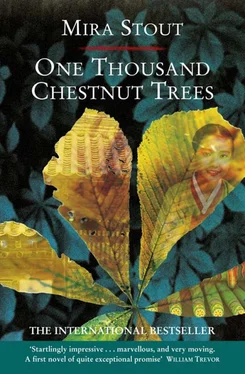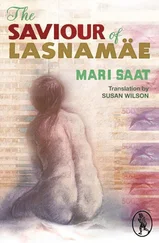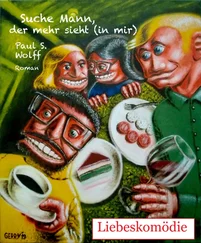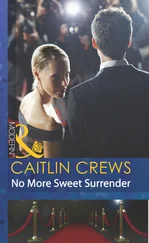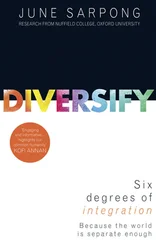1 ...8 9 10 12 13 14 ...18 Reading the encyclopaedia, I grew embarrassed by my ignorance. Even the most pedestrian of facts had passed me by.
I learned that Korea – ‘The Hermit Kingdom’ – was one of the oldest, most insular nations on earth, autonomous, racially, linguistically and culturally distinct for 5,000 years. Legend held that Koreans were descended from a semi-divine bear king, Tan-gun, in 2333BC. Science dated Korea’s origins to the Palaeolithic Age, identifying Koreans, rather unpoetically, I thought, as Tungusic Mongoloids , a Mongolian sub-species taller and fairer than other Asiatic races, though not through Caucasian influence, and unrelated to the Ainu -descended Japanese.
I studied these bald, creaky facts as if for an exam, stopping frequently to make cups of tea. It was not that the exercise was exactly boring, but it was painful, like doing years of ignored accounts. I grilled my father for any intelligence he might be hiding, but his knowledge was fairly sketchy too. He had left art school to serve as a draughtsman in the navy in World War II, but hadn’t left Maryland. They heard little on the boats; minimalist wire reports, crude newsreel propaganda, leaflets – that was all. My mother had told him odd family stories over the years, but they were mostly the same ones I had heard. Teeth gritted, I persevered with the history books.
Korea had been the last Far Eastern country to open her gates to the West in the 19th century, and only then under severe foreign trading pressure. Its xenophobia developed over the centuries by devastating foreign invasions; multiple regicides; organized mass rape; mass torturings; massacres and cultural repression. These and other deeds of shocking opportunism had been performed enthusiastically by the Japanese, with occasional cameos by Mongols and Manchus. During periods of peace, Korea had been a vital cultural channel between Japan and China, bringing Buddhism, art forms, and technologies to developing Japan, some two thousand years younger than Korea.
When Christianity was brought to Korea in the 18th century by the French, it was a catastrophe. Unprecedented division and slaughter ensued, creating the chaos that neighbouring Russia, China, and above all Imperial Japan, were to exploit to their advantage in the 19th century.
Japan ordered the assassination of the Korean Queen Min in 1895, and had annexed the country by 1910, turning it, like Manchuria, into a puppet state, brutally suppressing its language and culture for nearly four decades. When the deposed and humiliated King Kojong refused to grant further concessions, Japan allegedly ordered his fatal poisoning in 1919, provoking the pacifist March 1st Independence Uprising in which the Japanese massacred thousands of unarmed Koreans.
During World War II, Japan forced two hundred thousand Korean women into sexual slavery for the Japanese Army along with thousands of Dutch, Malaysians, and Chinese women; they reduced millions of educated Koreans into menial labourers, confiscated wealth and property, and imprisoned or executed all dissidents. Only Japan’s defeat in World War II briefly restored Korea’s freedom.
Then came more familiar tragedies: 1945: Korea partitioned without its people’s consent on the 38th parallel – an arbitrary North-South division designated by Russia and the Allies at Yalta to facilitate the withdrawal of Japanese troops; North under Communist aegis; South Capitalist. Five years later came the Korean War: one of the most savage in recorded history. Seventy-four thousand UN fatalities, thirty-five thousand American fatalities, and a staggering three million Korean dead. It accorded no glorious victory, only a bitter forty-four-year ceasefire. UN Forces under American command managed to protect the South from Communist takeover, but had virtually decimated the country through bombing.
As a direct result of the three-year war, Korea was left geographically and ideologically divided against the wishes of its own people, impoverished, and razed to the ground.
Freakish result of the war: thirty-five years later South Korea had become one of the richest capitalist economies in the world, while the communist North stood isolated, starving, and virtually brainwashed under the bizarre leadership of Kim Il-sung; the planet’s last Stalinist dictator.
After reading this catalogue of woe, I was almost winded by the scale of it.
I remembered a conversation my mother and I had once had about the war.
‘It was our fault,’ she said ruefully, ‘for not developing an effective army when we could see the Japanese arming themselves to the teeth. We were arrogant, not wanting to adopt Western industrialism and militarism. We believed that we could stick our heads in the sand while other countries joined the race. We were romantic, unrealistic … All we wanted to do was to read our books, farm the land, and watch the sunset,’ she said.
‘We were not interested enough in worldly power. And we were punished for it. So now we are interested in money and troops. Probably too interested.’
I was more upset about her tolerant attitude towards the Japanese invasions than I was about watching sunsets.
‘You don’t understand,’ she said.
‘Well, tell me!’
‘Don’t raise your voice. You still twine. You’re too old to twine.’
‘WHINE, not twine.’
‘Don’t talk back like that …’
‘Oh, please go on.’
‘Well, you must know this … For centuries Korea always regarded Japan as an … unruly younger brother, to be tolerated, in the Confucian way, rather than to be treated as an enemy. Aggression against a neighbour was considered shameful to Koreans … modesty and pacifism are important national ideals. We would do anything to avoid a conflict with our brothers; Japan knew this very well, and simply chose to take advantage of it,’ she said.
I kept silent, well out of my depth.
‘Don’t think that the West was ignorant of what Japan was up to,’ my mother went on. ‘On the contrary! Until Pearl Harbor, the United States and Great Britain actually encouraged Japan’s expansionist policy as a check against Communist Russia! When Syngman Rhee – the Korean President – appealed to the League of Nations in the thirties to put a stop to the Japanese, did the West help us? Absolutely not. They appeased the Japanese,’ she said with a sudden burst of animation. ‘We always felt that the West was more of an enemy than the Japanese, who were at least fellow orientals.’
‘But it wasn’t the West who kept invading Korea; it was Japan. Don’t you resent what the Japanese did at all?’ I asked, incredulous.
She looked at me in surprise, and spoke slowly again, weighing her words.
‘Calm down … Well, as a nation Japan was always … competitive and a bit immature; big-headed. Blinded by visions of power and empire. Their sense of humanity got lost … Japan was not alone in this way of thinking, you know. Think of revolutionary Russia, of Nazi Germany, of China and Tibet, there are too many to single out.’
‘But Ma, they were uniquely cruel to Koreans! Inhuman. Surely you don’t defend them,’
‘They are still our brothers. Human. All human beings are capable of evil, especially in times of war. Human nature is weak,’ she said.
I was faintly scandalized by her forgiveness of a people who had systematically raped her country, stamped out her language – even forced her to change her name to Japanese. To top it off, they claimed creepy racial superiority, and denied the Nanking Massacre and the existence of the ‘Comfort Women’ until confronted with the disgust of other nations. Yet my mother had never spoken maliciously of the Japanese, not in my presence, at least, and she refused to speak ill of them now. Although her patently worthy, Christian stance was admirable, I was irked that my mother had never shown anger about it, and refused to acknowledge the damage to her country, even when the Japanese would express no remorse, nor make formal reparations for their war crimes. If she had ever felt strong emotions, she never admitted them.
Читать дальше
